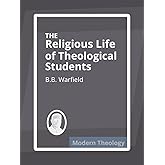Insightful take on God”s plan of Salvation. Makes a case for the Calvinistic conception of the Biblical doctrine of Salvation.
$1.39 $1.39
By clicking the button above, you agree to the Kindle Store Terms of Use.
These promotions will be applied to this item:
Some promotions may be combined; others are not eligible to be combined with other offers. For details, please see the Terms & Conditions associated with these promotions.
Price includes tax, if applicable
Sold by: Amazon Australia Services, Inc..
You've subscribed to ! We will pre-order your items within 24 hours of when they become available. When new books are released, we'll charge your default payment method for the lowest price available during the pre-order period.
Update your device or payment method, cancel individual pre-orders or your subscription at
Your memberships & subscriptions
Your memberships & subscriptions
There was an error! We were unable to process your subscription due to an error. Please refresh and try again.

Download the free Kindle app and start reading Kindle books instantly on your smartphone, tablet or computer—no Kindle device required.
Read instantly on your browser with Kindle for Web.
Using your mobile phone camera, scan the code below and download the Kindle app.

Follow the author
Something went wrong. Please try your request again later.
OK
The Plan of Salvation Kindle Edition
Sorry, there was a problem loading this page.Try again.
Does man save himself or does God alone save him, or is it somewhere in-between?
The Subject to which our attention is to be directed in this series of lectures is ordinarily spoken of as "The Plan of Salvation." It is my purpose in this lecture to bring before us in a rapid survey the varying views as have been held by large parties in the Church, that some conception may be formed of their range and relations. This may be most conveniently done by observing, in the first instance at least, only the great points of difference which separate them. I shall enumerate them in the order of significance, proceeding from the most profound and far-reaching differences which divide Christians to those of less radical effect.
Dr. Michael J. Kruger wrote the following of this little book....
Throughout the history of the church, there are have been many different perspectives on how a person is saved. So, what is the best way to help Christians understand these various approaches? And what is the most effective way to make the case for Calvinism?
There are many answers to these questions, but there is one resource that I have found tremendously helpful. And it is a resource that is often overlooked and forgotten. And that resource is the five lectures delivered by B.B. Warfield in 1914 at Princeton Theological Seminary.
These lectures are not found in the standard 10 volume collected works of Warfield–and for that reason are often missed. Instead they are found in a little book entitled The Plan of Salvation.
What makes Warfield’s approach so helpful is that he takes the reader through a series of choices about how God saves–starting with very broad concepts and moving towards more specific concepts. At each point along the way he eliminates the options that just don’t work. Thus, the reader is able to see how theologians have arrived at a belief in Calvinism in a gradual, step by step fashion.
In a sense, Warfield has created a logical “decision tree” that any Christian could follow. Thus, it is an incredibly useful tool for convincing people of the Reformed approach...Here is the outline of his decision tree:
1. Deism vs. Theism: Is God personally involved in our lives (Theism) or does he stand back from the universe and allow it to take its course (Deism)?
Warfield’s answer: Theism.
2. Supernaturalism vs. Naturalism: Given the reality of Theism, the next question is whether man saves himself and works his way to God (Naturalism) or whether God intervenes and saves man (Supernaturalism).
Warfield’s answer: Supernaturalism.
3. Evangelicalism vs. Sacerdotalism: Given the reality of Supernaturalism, the next question is the specific manner in which God saves. Does God save men through an instrument he has appointed like the sacraments (Sacerdotalism) or does he act on people’s souls directly and immediately (Evangelicalism)? Does God use sacraments as an intermediary or he does God operate directly on the human soul by grace?
Warfield’s answer: Evangelicalism.
4. Universalism vs. Particularism: Given the reality of Evangelicalism–that God works on men’s souls directly–the next question is whether he exerts this saving power equally on all men. Does he apply this saving power on every person, whether they or saved or not (Universalism), or does he apply it to particular individuals who are actually saved (Particularism)? Does God’s grace just make salvation a possibility or does it actually make salvation a reality?
Warfield’s answer: Particularism (Calvinism).
The logic and flow of Warfield’s argument are powerful and weighty. He builds such momentum towards Particularism (Calvinism), that even at an early point in the book the reader gets the sense that it is an inevitability. All the biblical and theological arrows are pointing in the same direction.
If you are looking for a persuasive tool for others, or even for yourself, check out Warfield’s little book.
The Subject to which our attention is to be directed in this series of lectures is ordinarily spoken of as "The Plan of Salvation." It is my purpose in this lecture to bring before us in a rapid survey the varying views as have been held by large parties in the Church, that some conception may be formed of their range and relations. This may be most conveniently done by observing, in the first instance at least, only the great points of difference which separate them. I shall enumerate them in the order of significance, proceeding from the most profound and far-reaching differences which divide Christians to those of less radical effect.
Dr. Michael J. Kruger wrote the following of this little book....
Throughout the history of the church, there are have been many different perspectives on how a person is saved. So, what is the best way to help Christians understand these various approaches? And what is the most effective way to make the case for Calvinism?
There are many answers to these questions, but there is one resource that I have found tremendously helpful. And it is a resource that is often overlooked and forgotten. And that resource is the five lectures delivered by B.B. Warfield in 1914 at Princeton Theological Seminary.
These lectures are not found in the standard 10 volume collected works of Warfield–and for that reason are often missed. Instead they are found in a little book entitled The Plan of Salvation.
What makes Warfield’s approach so helpful is that he takes the reader through a series of choices about how God saves–starting with very broad concepts and moving towards more specific concepts. At each point along the way he eliminates the options that just don’t work. Thus, the reader is able to see how theologians have arrived at a belief in Calvinism in a gradual, step by step fashion.
In a sense, Warfield has created a logical “decision tree” that any Christian could follow. Thus, it is an incredibly useful tool for convincing people of the Reformed approach...Here is the outline of his decision tree:
1. Deism vs. Theism: Is God personally involved in our lives (Theism) or does he stand back from the universe and allow it to take its course (Deism)?
Warfield’s answer: Theism.
2. Supernaturalism vs. Naturalism: Given the reality of Theism, the next question is whether man saves himself and works his way to God (Naturalism) or whether God intervenes and saves man (Supernaturalism).
Warfield’s answer: Supernaturalism.
3. Evangelicalism vs. Sacerdotalism: Given the reality of Supernaturalism, the next question is the specific manner in which God saves. Does God save men through an instrument he has appointed like the sacraments (Sacerdotalism) or does he act on people’s souls directly and immediately (Evangelicalism)? Does God use sacraments as an intermediary or he does God operate directly on the human soul by grace?
Warfield’s answer: Evangelicalism.
4. Universalism vs. Particularism: Given the reality of Evangelicalism–that God works on men’s souls directly–the next question is whether he exerts this saving power equally on all men. Does he apply this saving power on every person, whether they or saved or not (Universalism), or does he apply it to particular individuals who are actually saved (Particularism)? Does God’s grace just make salvation a possibility or does it actually make salvation a reality?
Warfield’s answer: Particularism (Calvinism).
The logic and flow of Warfield’s argument are powerful and weighty. He builds such momentum towards Particularism (Calvinism), that even at an early point in the book the reader gets the sense that it is an inevitability. All the biblical and theological arrows are pointing in the same direction.
If you are looking for a persuasive tool for others, or even for yourself, check out Warfield’s little book.
- LanguageEnglish
- Publication date21 March 2017
- File size849 KB
Kindle - Purpose built for reading
Read distraction-free. Highlight passages, look up definitions, translate words, and adjust text size—without ever leaving the page. Shop Now
Popular titles by this author
Page 1 of 1 Start again
Product details
- ASIN : B06XSNJB1F
- Publisher : Monergism Books
- Accessibility : Learn more
- Publication date : 21 March 2017
- Language : English
- File size : 849 KB
- Simultaneous device usage : Unlimited
- Screen Reader : Supported
- Enhanced typesetting : Enabled
- X-Ray : Not Enabled
- Word Wise : Enabled
- Print length : 89 pages
- Page Flip : Enabled
- Best Sellers Rank: 648,409 in Kindle Store (See Top 100 in Kindle Store)
- 146 in Calvinism
- 249 in Calvinist Christianity
- 276 in Soteriology Christian Theology
- Customer Reviews:
About the author
Follow authors to get new release updates, plus improved recommendations.

Discover more of the author’s books, see similar authors, read book recommendations and more.
Customer reviews
4.5 out of 5 stars
4.5 out of 5
78 global ratings
How are ratings calculated?
To calculate the overall star rating and percentage breakdown by star, we don’t use a simple average. Instead, our system considers things like how recent a review is and if the reviewer bought the item on Amazon. It also analyses reviews to verify trustworthiness.
Top reviews from Australia
There are 0 reviews and 0 ratings from Australia
Top reviews from other countries
 The Rebecca ReviewReviewed in the United States on 23 October 2019
The Rebecca ReviewReviewed in the United States on 23 October 20194.0 out of 5 stars A Detailed Account of Beliefs on Salvation
Verified Purchase“He who wills not to be saved cannot be helped even by the Holy Spirit.” ~ B.B. Warfield
A dear Puritan friend of mine has been introducing me to authors like Archibald Alexander Hodge, Stephen Charnock and William Gurnall. These authors have written some of the most spiritually compelling books I've ever read. Now my friend thinks I'm ready for B.B. Warfield as he says Warfield is even better than Hodge. While I found that hard to believe even after only reading my first Hodge book, Warfield goes to much deeper levels and seems to draw on an endless ocean of knowledge.
“The Plan of Salvation” has some interesting and differing opinions about Salvation. This is a book filled with lectures on the topics of Autosoterism, Sacerdotalism, Universalism and Calvinism. Don't let these ideas intimidate you, the lectures are easier to understand than at first glance.
By reading these lectures you will find out what you truly believe and what it takes to be secure in your salvation. The book begins with an introduction to Deism and Theism and why the second choice indicates God has a plan of salvation.
Right from the start of the introduction you realize you are in the hands of a great organizer of important contemplations. B.B. Warfield delves into secular philosophies to show the difference in belief systems. He has a great handle on historical events and has extensive knowledge of religious leaders.
The first section may be a little slow going, but once the lectures begin it is captivating. I would not recommend this to totally new Christians, but more to those who are interested in beliefs that differ and are similar to their own and have read the Bible multiple times. The spiritual vocabulary in this book is quite extensive!
~The Rebecca Review












